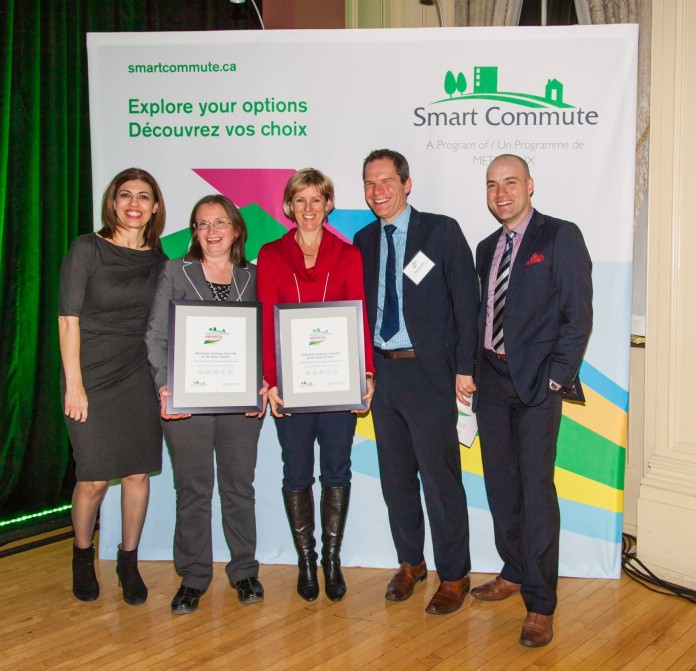
As Hamilton’s largest employer, Hamilton Health Sciences (HHS) has an undeniable responsibility to help make our surrounding community one that’s healthy and sustainable. Several years ago, in an effort to reduce its environmental footprint and to help ease the flow of traffic around its sites, HHS launched Smart Commute, is a transit-savvy program developed by Metrolinx that helps local businesses and organizations explore effective travel options, such as walking, cycling, using public transit, carpooling, and working from a distance.
MORE: THE DIGITAL HEALTH REVOLUTION
With the population of the Greater-Toronto-Hamilton-Area (GTHA) rising to 7 million within the next 20 years, and along with our evolving climate, changing the way we think about commuting to and from work is a matter worth addressing. Hamilton Health Sciences alone employs more than 11,000 people from Hamilton and the surrounding area. Factor in volunteers, students, families, outpatient visits, among others traveling to and from the hospital each day, and the demand on parking and ease of traffic flow around our hospital sites becomes challenging. Smart Commute has encouraged many HHS employees to choose more environmentally friendly, cost-effective modes of transportation to and from work – including carpooling and public transit – which, in turn, help to relieve the daily constraints of motor vehicle parking on site.
Since 2006, HHS’ Smart Commute initiative has been facilitated by Joceline Turner, Technical Specialist at HHS, and Rebekah Jackson-Gravely, Advanced Rehabilitation Therapist at HHS; co-chairs of the Smart Commute Hamilton program. With support from HHS Parking Services and the local Smart Commute chapter, many initiatives have been successfully implemented at HHS over the last several years:
- Creation and implementation of HHS-wide carpooling.
- Creation of four secured bike shelters at four hospital sites. Since these shelters have been in place, no bike has been stolen.
- Implementation of Emergency Ride Home: a subsidized cost for people who carpool, but unexpectedly need to take a separate vehicle home.
- Facilitating HHS’ involvement in Commuter Challenge and Clean Air Commute: friendly competitions among Canadian organizations seeking to reduce their commuting emissions.
- Facilitating HHS’ involvement in Carpool Week and Bike to Work Day.
“I feel that getting the bike shelters built has been one of my happiest accomplishments,” said Rebekah. “It took two years of hard work and was a huge learning experience.”
MORE: GREEN IN ACTION: MARKHAM STOUFFVILLE HOSPITAL
In 2007, Smart Commute – HHS was included in HHS’ application for the Top 100 Employers award. Due in part to Smart Commute, HHS was awarded this honour for the first time. In the same year, HHS was awarded Employer of the Year by Smart Commute GTHA.
This recognition has only pushed Rebekah and Joceline to innovate further and improve on their existing accomplishments. Their current focus is to increase staff awareness of the program and transportation options available at HHS, as supported by Smart Commute. Their ultimate goal is to reduce single-occupancy traffic, getting more people inside of fewer cars.
With the Pan Am Games only six months away, now is a critical time to consider alternative transportation options. From June 29 to August 17, 2015, residents of Hamilton and the GTHA can expect to see a significant increase in traffic across highways and in major city centres. If you’ve ever considered carpooling, now is the best time to do so. Visit www.smartcommute.ca and learn how Smart Commute can help you find an existing carpool, or create one yourself.

